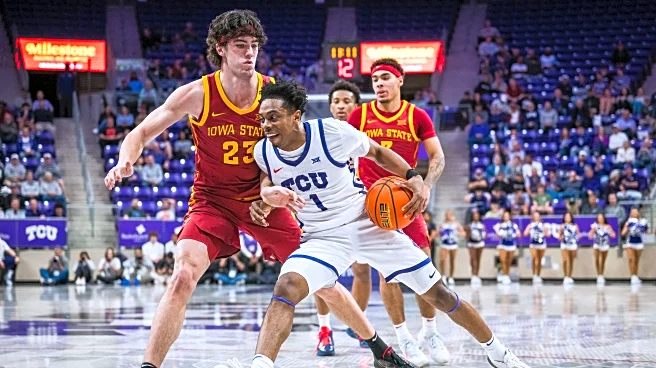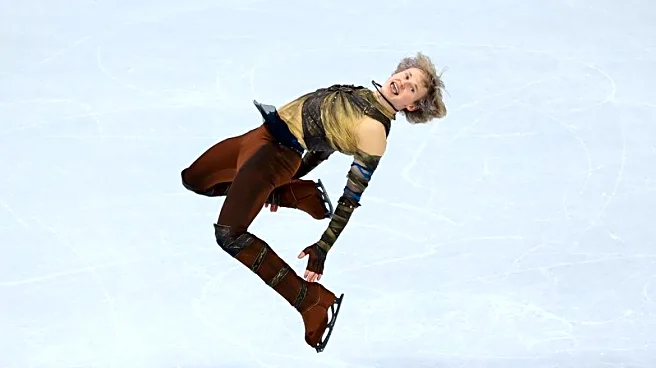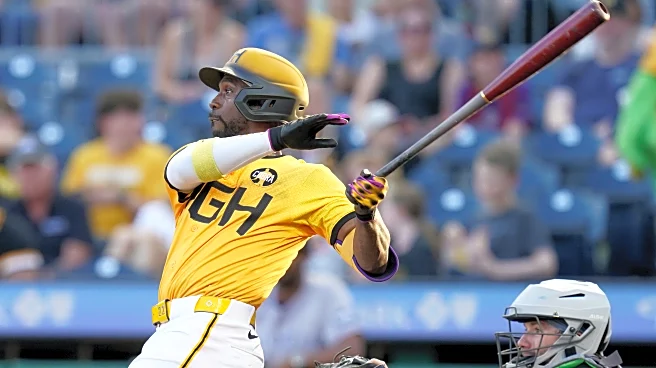What's Happening?
Michael A. Taylor, an outfielder for the Chicago White Sox, has announced his retirement from Major League Baseball. Taylor made the announcement before the team's season finale against the Washington Nationals. Over his 12-year career, Taylor played for several teams, including the Washington Nationals, Kansas City Royals, Minnesota Twins, Pittsburgh Pirates, and the White Sox. He won a Gold Glove in 2021 and was part of the Nationals' 2019 World Series-winning team, which he cites as his favorite memory in baseball. Taylor decided to retire to spend more time with his family, including his two young children. This season, he has been hitting .199 with nine home runs and 34 RBIs, contributing veteran leadership to the rebuilding White Sox.
Why It's Important?
Taylor's retirement marks the end of a significant career in MLB, where he was known for his defensive skills and veteran presence. His departure may impact the White Sox, who are in a rebuilding phase and have relied on his experience to guide younger players. The decision also highlights the personal sacrifices athletes make, as Taylor prioritizes family over his professional career. His retirement could influence other players considering similar decisions, emphasizing the importance of life beyond sports. Taylor's career achievements, including a World Series title and a Gold Glove, underscore his contributions to the teams he played for and the league as a whole.
What's Next?
With Taylor's retirement, the White Sox will need to fill the gap left by his departure, potentially looking to younger players or new acquisitions to take on his role. The team may focus on developing its roster to build a competitive lineup for future seasons. Taylor's decision may also prompt discussions within MLB about player longevity and the balance between career and personal life. As teams plan for the next season, they will consider how to integrate veteran leadership and experience into their strategies.
Beyond the Headlines
Taylor's retirement brings attention to the broader issue of athlete career transitions and the challenges they face when leaving professional sports. It raises questions about how teams support players in their post-retirement lives and the resources available to help them adjust. The decision also reflects the evolving priorities of athletes, who increasingly value family and personal well-being alongside their professional achievements. This shift may influence how teams structure contracts and support systems for players nearing the end of their careers.











